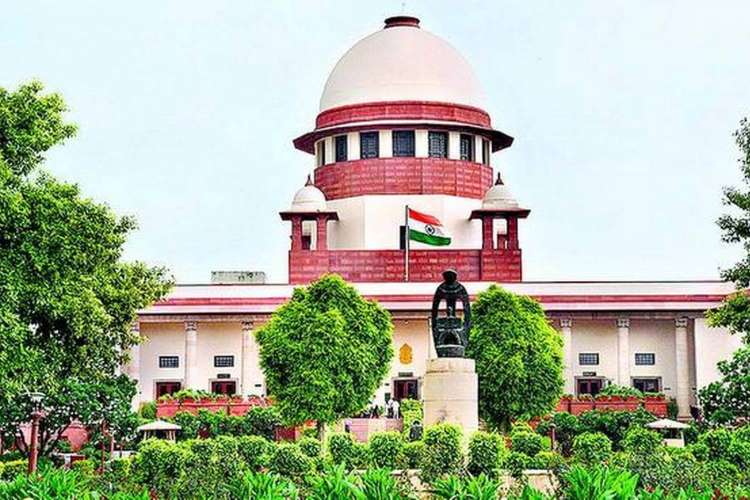
The Supreme Court of India in a ruling on May 26 said voluntary sex work is not illegal. It is significant in the context that sex work was not legally recognised as work in India so far. “Notwithstanding the profession, every individual in this the country has a right to a dignified life under Article 21 of the Constitution,” the court said.
The Supreme Court observed that sex work is a profession like any other. Sex workers are entitled to equal status and equal protection under the law of the land. In the context of the absence of a law on sex work, the Supreme Court, in the exercise of its powers under Article 142, has issued a series of directions on their rehabilitation, including sensitising police to treat sex workers with dignity and to stop abusing them or subjecting them to violence.
A three-judge bench headed by Justice L Nageswara Rao issued six guidelines. The bench said, “Sex workers are also entitled to equal protection and dignity in the eyes of the law. When it is clear that the sex worker is an adult and is participating with consent, the police must refrain from interfering or taking any criminal action.” The bench comprising Justices Rao, B F Gavai and A S Bopanna asked states and Union territories to act in strict compliance of some of these recommendations which “relate only to rehabilitation measures in respect of sex workers and other connected issues”.
READ I India should produce smallpox vaccines to combat monkeypox, says Ishwar Gilada
This observation by the Supreme Court was made in the context of a plea flagging the deprivation faced by sex workers on account of the Covid-19 pandemic and sought relief measures for over nine lakh women and transgender sex workers across India. The court observed that sex workers should not be arrested, penalised or harassed through raids on brothels because voluntary sex work is not illegal and only running the brothel is unlawful. Further, it instructed the police not to discriminate against sex workers and called for sensitisation on this issue.
In its order, the bench said the media should take “utmost care to not reveal the identities of sex workers, during arrest, raid and rescue operations, whether as victims or accused and not publish or telecast any photo that would result in disclosure of such identities. A sex worker’s child should not be deprived of her mother’s care “on the ground that she is in the sex trade,” the court observed. “Basic protection of human decency and dignity extends to sex workers and their children,” it said.
The Supreme Court also instructed police not to discriminate against sex workers who lodge a complaint, if the offence against them is of sexual nature. Sex workers who are victims of sexual assault should be provided with every facility, including immediate medico-legal care. The apex court added that the directions so passed would hold the field until the time the Union Government comes up with legislation on this subject. Both the Centre and States must involve sex workers or their representatives in the process of reformation of laws, the court pointed out.
READ I Runaway inflation may leave RBI with Hobson’s choice
Context of the ruling
On July 19, 2011, the Supreme Court had ordered the setting up of a panel headed by senior advocate Pradip Ghosh as chairman to suggest measures to prevent trafficking and to rehabilitate sex workers who wish to leave the profession, and also to make conditions conducive for sex workers who wish to continue working to do that with dignity.
The committee also included senior advocate Jayant Bhushan, Usha Multipurpose Cooperative Society through its president/secretary, Durbar Mahila Samanwaya Committee through its president/secretary, and NGO Roshni Academy through its founder Saima Hasan. The panel submitted a series of recommendations. In 2016, the Supreme Court observed that the recommendations were considered by the government of India and draft legislation was published incorporating the recommendations. However, since no law was enacted, the Supreme Court under Article 142, preferred to issue recommendations in the present context.
The court stated that “as the legislation has not been made till date, even though the recommendations were made by the Panel in 2016 and the said recommendations have to be implemented, we are exercising our powers conferred under Article 142 of the Constitution, to issue the following directions which will hold the field till a legislation is made by the Union of India.”
The court directed that of the 10 recommendations, six which relate to the rehabilitation measures in respect of sex workers and other connected issues be implemented with immediate effect and asked states and Union territories “to act in strict compliance of the recommendations”.
Sex Work in India
Sex work remains invisible in India. Sex workers exist but are not legally recognised. In an explicit sense, the Indian Penal Code is silent about prostitution. As per the Immoral Traffic (Prevention) Act 1986, soliciting customers in public spaces and running brothels are illegal. This act is grossly mis-utilised by the law-enforcing authorities to harass sex workers as well as their clients.
Raids in brothels are commonplace and sex workers face criminal prosecution quite frequently. As sex work is not recognised as work, sex workers are denied trade union rights. Durbar Mahila Samanwaya Committee (DMSC), an organisation of sex workers fighting for rights & dignity, mobilised sex workers in Sonagachi in Kolkata and tried hard to get registration under the Trade Union Act 1926. But so far registration has not been granted.
The condition of sex workers in India is deplorable. They face discrimination in their public life and suffer from a severe lack of dignity as workers as well as human beings. They face constant harassment from various law enforcement agencies and extra-constitutional entities. Occupational health hazards are very high and the precarity of livelihood is highly significant. In socio-economic sense, sex workers in India are highly vulnerable.
Sex work in the rest of the world
While the legal status of sex work is ambiguous in India, several countries across the world have legalised sex work and thereby granting sex workers legal rights and protection. Across Europe, countries such as Germany, Netherlands, France, Austria, Switzerland, Greece have legalised the profession.
Germany legalised sex work in 1927 and there are state-run brothels. The workers are provided with health insurance, pay taxes and receive social security benefits like pension. Prostitution has been legal in Switzerland since 1942. Sex workers work in a brothel or buy a daily ticket to sell sex in designated street areas. In France, prostitution is legal but soliciting in public is still outlawed.
Austria has also made prostitution legal. Prostitutes of 19 years of age and above are required to register, undergo periodic health examinations and pay taxes. The Netherlands also legalised prostitution in 2000 and Amsterdam’s, De Wallen, is the largest and most famous red-light district in the city and a popular sex tourism destination.
Outside Europe, New Zealand has legalised sex work since 2003 and the country also has licensed brothels operating under public health and employment laws. Canada has also permitted sex work, but pimping and running brothels are illegal. Similar is the legal situation in Brazil. Ecuador also has legalised sex work and the running of brothels.
Implications of the Supreme Court observations
The Supreme Court order puts a limit on police actions regarding sex workers and treat sex workers and their children at par with the rest of the people. Consensual adult sex work and the presence of sex workers in a brothel would not warrant an arrest or police interference, as per the SC order. This is very important as the police tend to harass sex workers on a regular basis.
The apex court recognised the adversities faced by sex workers, observing, “… this basic protection of human decency and dignity extends to sex workers and their children, who, bearing the brunt of social stigma attached to their work, are removed to the fringes of the society, deprived of their right to live with dignity and opportunities to provide the same to their children.”
The Supreme Court order also prohibits the forced separation of children of sex workers. The order states, “Further, if a minor is found living in a brothel or with sex workers, it should not be presumed that he/she has been trafficked. In case the sex worker claims that he/she is her son/daughter, tests can be done to determine if the claim is correct and if so, the minor should not be forcibly separated.”
The guidelines by the Supreme Court would go a long way in establishing the legal rights of sex workers in India. It sets the basic paradigm and recognising adult consensual sex work as work is a historic one in the Indian context. DMSC’s endeavour to provide trade union rights to the sex workers in West Bengal and subsequently in other parts of the country would become possible in near future.
(The views expressed are that of the author.)
Dr Kingshuk Sarkar is an associate professor at the Goa Institute of Management. He has worked as a labour administrator with the government of West Bengal. He earlier served as a faculty member at VV Giri National Labour Institute, Noida and NIRD, Hyderabad. Views expressed are personal.


